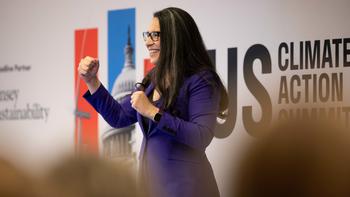UN human rights experts* today urged Cambodian authorities to halt the planned implementation of data surveillance legislation, saying it is repressive and further undermines privacy rights and democratic freedoms in the country.
The ‘Sub-decree on the Establishment of the National Internet Gateway’, due to come into effect on 16 February, will have a serious negative impact on internet freedom, human rights defenders and civil society in the country, further shrinking the already-restrictive civic space in Cambodia, the experts said. The decree permits the Cambodian Government to monitor internet activity, intercept and censor digital communications, and collect, retain and share personal data of users.
“This repressive decree could have a devastating effect on privacy and presents an inherent risk such information could be misused,” the experts said.
The legislation grants exhaustive power to so-called National Internet Gateway operators to monitor websites that people visit, as well as the metadata related to every website visit. It will also allow authorities to arbitrarily switch off internet access or block certain websites or domains.
“As the world has evolved to depend on internet access as a primary channel for communication, information sharing and networking, the body which controls the internet effectively controls much of society,” the experts said.
The experts said the decree, in its current form, goes beyond the permissible restrictions to freedom of expression established in Articles 17 and 19(3) of the International Covenant on Civil and Political Rights, a cornerstone human rights treaty to which Cambodia is a party. They are requesting Cambodian authorities suspend implementation and work with international human rights mechanisms and the United Nations Country Team to bring it into line with human rights protections.
“To legally justify such a sweeping infringement on personal freedoms requires compliance with strict tests of legality, necessity and proportionality, including for matters of national security or public morality,” the experts said. “It is exceedingly hard to imagine how any such legal justification may apply in this case.”
UN experts last year wrote to the Cambodian authorities asking them not proceed with implementation of the legislation until rigorous human rights safeguards were implemented.
“To open up to such wide-ranging control could result in the backsliding of innumerable human rights protections and guarantees that have been achieved over the preceding decades – and once the genie is out of the bottle it is very hard to be contained again,” the experts said.







